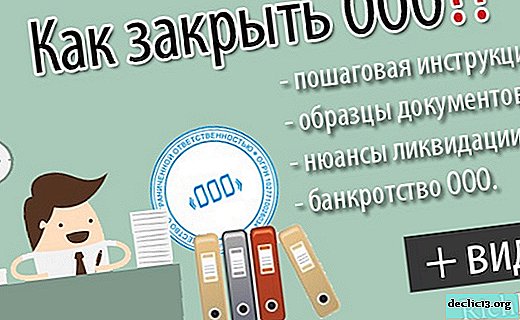What to do if there is no money to pay for a loan and there are delays in debt
Hello, I have a question for the experts of the Rich Pro website! What if there is no money to pay on loan obligations? In connection with life circumstances, from 2014 I had to collect a bunch of loans (goods were also issued on credit).
I’ve been crying for several years now, it remains to pay about a year, but I’m running out of money, there are delays, and besides, my income has sharply decreased recently. I think to get a 3rd job, but physically I can’t. Tell me, are there any solutions to this problem?
Ramil, 38 years old, rep. Tatarstan
Nowadays, many citizens have several loans simultaneously. If a couple of years ago, the presence of three or more loans was inappropriate, but now it has become the norm. The lender may have several credit cards, and at the same time issue goods on credit.
This situation often leads to bad consequences. Most of these borrowers fall into a debt hole. There are problems with the bank, which can subsequently sell the debt to the collection service, which in turn will terrorize the calls of the borrower and the debtor's relatives. As a result, appear problems at work, with friends and relatives.

Consider some ways to solve this problem.
1. Try to negotiate with the bank
If the borrower has a lot of loans, then, as a rule, they are issued at once in several organizations. This will significantly complicate the situation, because you have to go on a dialogue not with one bank, but with several at once. It will take a lot of time, but in the end you will find the right way out of the situation with the bank.
Credit organizations can offer you:
- Refinancing. In this case, the bank may offer to borrow money to pay for loans. We recommend reading articles on credit refinancing and mortgage refinancing.
- Loan holidays. A loan vacation means a deferred loan, at this point you can not pay the loan debt. It is also worth considering that a loan deferral can be full or partial. More often, banks agree to a partial deferral of the loan, which in turn implies the payment of interest, and the main debt can not be paid until the end of the time period set by the bank. This will help you reduce your financial burden a bit.
- Restructuring. In this case, the bank will increase the loan repayment period, which significantly reduces the amount of the monthly payment. We have already told you what credit restructuring is in a separate article.
Do banks often meet debtors?
To meet the debtor or not is a private matter of a credit organization. The law does not provide for this fact, and does not oblige them to help if the debtor has difficulties with payments. But the credit institution itself is interested in paying off the debt, so they often go to a meeting.
If you have financial difficulties and you just go to the bank to ask for help, then it is unlikely that the bank will meet you.
But, if you confirm your difficulties documented (labor with a note of reduction, sick leave and others), then the bank will consider your request.
2. Filing a lawsuit against the debtor
If you completely stopped paying on the loan, then the bank will be forced to go to court and collect the debt from you. But, initially they will turn to a collection agency, which in due time may buy your debt. Having several loans at the same time, collectors from all credit organizations will bother you, in which case you it is generally necessary to change the number and change residence.
Each bank operates differently. One will immediately file a lawsuit after a certain period, the other will turn to the collectors.
3. The court - the solution to the problem
The court should not be afraid, as the court can be the solution to your problem. If you have a lot of loans and cannot repay them, then in your own interests bring the matter to court and declare yourself bankrupt. Read about bankruptcy in this article.
It doesn’t make sense to pay a little to the bank, interest will still go, and your situation will not improve in any way. The court often writes off most of the debt.
As a result, the court will fix a certain amount of interest on which they will no longer go.
After the trial, the case will go to the bailiffs, who, in turn, are less demanding and loyal to the debtor than the bank itself.
The bailiff may impose a deduction on wages in the amount of 50% percent also seize property, and seize all accounts.
Your case will be led by one bailiff, who, in turn, when making some payments on debt, will not bother you with his calls.
P.S. You can also take advantage of the bankruptcy law of an individual. Read about how the bankruptcy procedure of individuals goes, read in detail in one of our articles.
The Rich Pro team hopes to be able to answer your question. If you still have any questions, ask them in the comments below. See you on the pages of our magazine!

















